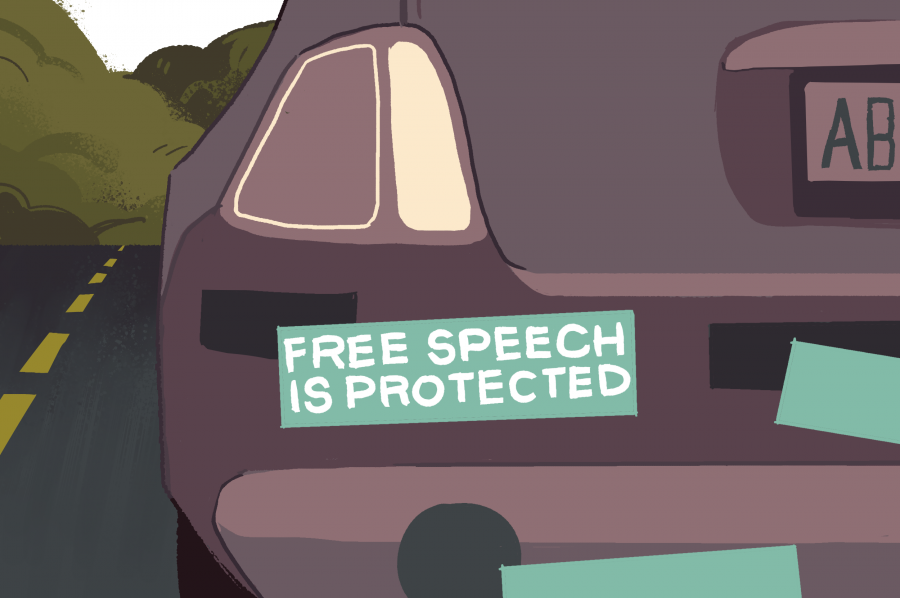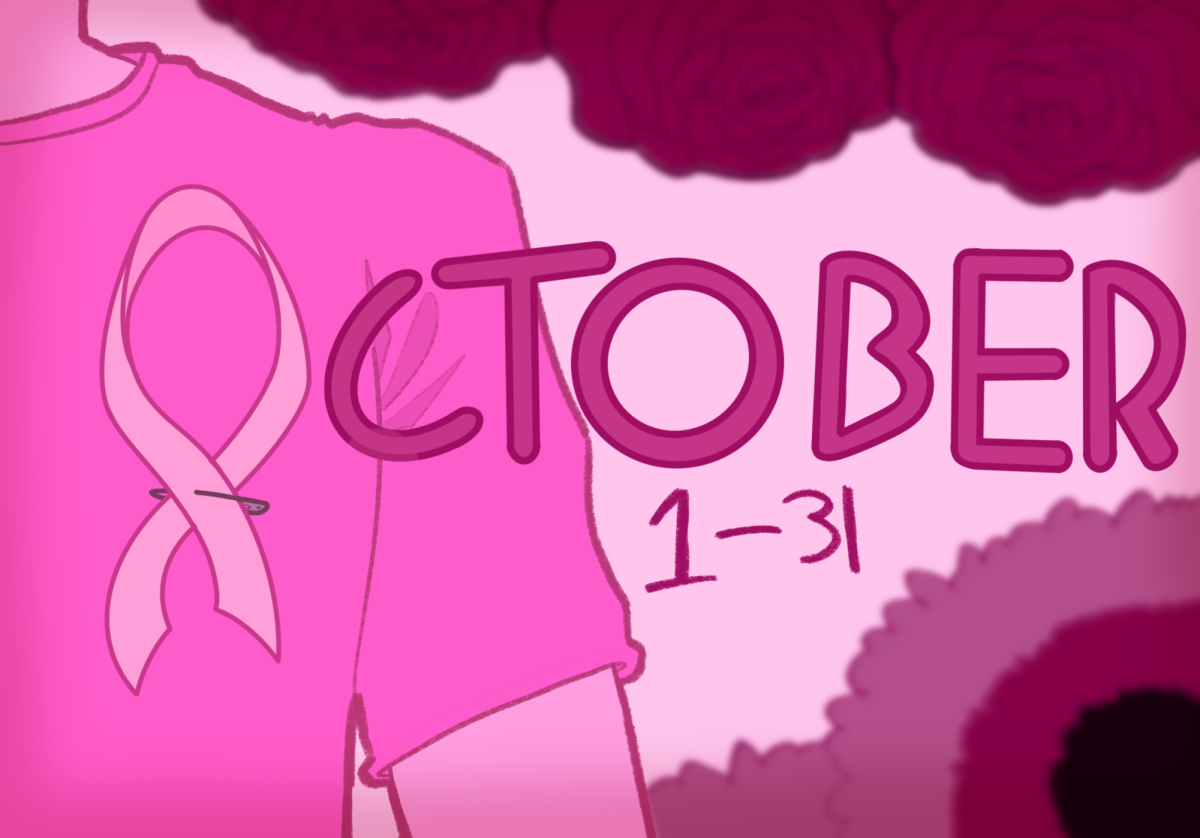In a nation swirling in such political pandemonium it would make headless chickens jealous, we’ve circled our way back to the controversy regarding the application of free speech, and this time, it’s doesn’t have anything to with spoken words, tweets that are diatribe, or physical acts of expression– it’s about a profane sticker slapped on the back of a pickup.
In Texas, Fort Bend county sheriff Troy Nehls suggested the application of criminal charges to the owners of a white truck displaying a vulgar disapproval of President Trump and those who voted for him, the sticker reading “[expletive] Trump and [expletive] you for voting for him” on her rear window.
Nehls and supporters of the charges cite the message as being in violation with Texas state law, specifically in that the charges pressed would be based on disorderly conduct, and while elements of the law do seem to apply, the truck owner Karen Cook Fanesca and her followers argue that her sticker is protected under the First Amendment and that she did not violate any laws, but was merely exercising her right to free speech.
This is where the cyclical nature of free speech stands in our nation, the unsavory mileage of gray area that either festers censorship or derails peace in our society. However, I would argue that while there are limits to free speech in regards to directly harming the rights of another person the unsophisticated and abrasive manner of her expression should not be condoned, Fanesca is not in conflict with any laws.
In accordance with the Texas Penal Code, a charge of disorderly conduct may be applied if person “uses abusive, indecent, profane, or vulgar language in a public place, and the language by its very utterance tends to incite an immediate breach of the peace” or “makes an offensive gesture or display in a public place, and the gesture or display tends to incite an immediate breach of the peace,” which are the two scenarios in the law that most directly apply to Francesca’s predicament.
While it is true that her vehicular exhibition is caustic in its word choice, the phrase “breach of the peace” is the crux for which charges against her would stand. “Breaching the peace” in legal terms delineates a disturbance in society usually incited by explicit threats or abusive acts to other individuals, and the public use of profanity is mentioned in West’s Encyclopedia of American Law.
That being said, that does not automatically make it complicit until that is decided by a judge, and most examples of breaching the peace involve a direct physical threat that perturbs the society as a whole, and Francesca claimed she had “no particular reason” for applying the sign, which could defend her as displaying no direct threat. It’s easy to say that the language used by Fanesca did incite frustration from some, but there isn’t an unequivocal threat to the safety of President Trump or his voters, meaning there is no real breaching of the peace as per the Texas law.
Yes, people were upset, but they weren’t in any danger and we can’t allow the impulses of a society to judge whether or not speech deserves punishment, as that only fosters biased censorship. Instead, we need to rely on the
Constitution as the supreme law of the land, the eternal adjudicator in our tumultuous history.
The First Amendment obviously prevents Congress from creating any law abridging the freedom of expression, yet the 14th Amendment is what binds all states to be compliant with the First Amendment under the Equal Protection Clause, which means this will turn into a national dilemma should the charges be pressed and the first amendment be used as a defense, and past Supreme Court cases seem to be in favor of Francesca.
The 1972 case Cohen v. California ruled in favor of a man who wore a jacket stating “[expletive] the draft” in response to the Vietnam War. The same obscenity used by Francesca was protected by the Supreme Court in protection of the emotive and expressive elements of the First Amendment, and keep in mind that a Supreme Court ruling is based of the Constitution, a document that possesses supremacy over state laws.
Now, the 1942 case Chaplinsky v. New Hampshire does not grant protection to “fighting words” under the First Amendment, and while the situation looks similar, I would still argue that Francesca is not causing direct injury to anyone. Yes, Trump is indubitably stated, but there is no specific threat made to the president, and her display is a full expressionary thought, not a derogatory term applied to describe the president.
However, Francesca’s decision should not be celebrated. While I argue she did not break any laws, she is certainly far from a shining example of excellent citizenship or advocacy for the First Amendment. The Presidential Election of 2016 was widely criticized for the slander and disparaging name-calling that politics was reduced to, and we are obliged as responsible Americans not to allow ourselves to be anchored into the depths of aspersions and insults.
If you want to express your thoughts, do so in a sophisticated manner so that an actual, respectful conversation can be made and our country can move forward on issues rather than suffering a stalemate of squabbling in this dysfunctional marriage of left and right. Free speech is not something to be taken for granted and you should never be obstructed from your right to use it by the government, but like any tool, the best application of it can get work done the fastest.
My defense of Francesca was out of fear that our First Amendment rights could be abused, but ensuring they aren’t so they are preserved for us to use in a meaningful way. We wouldn’t have to enter ridiculous arguments on our right to free speech if we had common sense on how to use it. When it comes to delivering an impactful message, give one that has the power to be proudly displayed not just in America, but one that could proudly represent us to the world.









